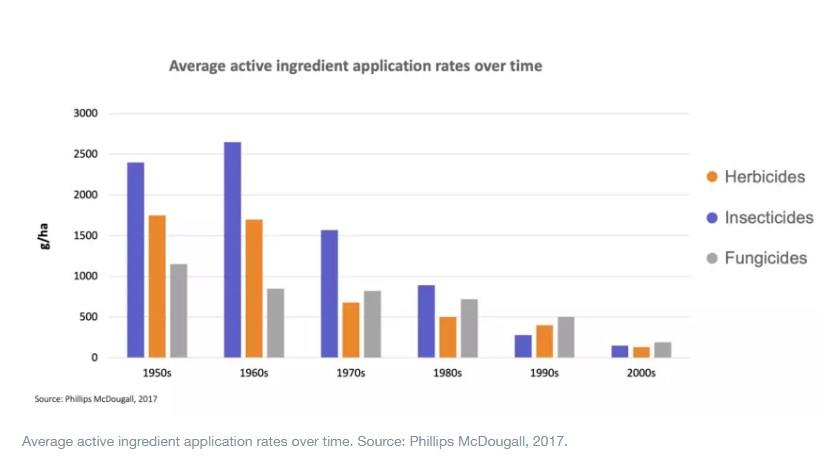by J. Erik Fyrwald*
- Approximately 40% of the global population cannot afford a healthy diet.
- Agriculture industry is vulnerable to climate impacts, making it harder to support a growing population.
- Innovative technologies and practices are critical to enable sustainable farming that can feed the world.
Of all the challenges facing modern society, it’s crucial we ensure our growing global population has enough to eat.
According to the UN, more than 3 billion people around the world – 40% of the global population – cannot afford a healthy diet. By 2050 the global population is expected to grow by an additional 2 billion, so unless we make changes that’s a grim prospect.
With more people to feed, we want to avoid converting more land for farming. Climate change and creeping desertification mean that the world has already lost more than one-third of its arable land in the last 40 years. And we want to stop deforestation and return more land to nature.
How can we feed an expanding world population?
It’s a daunting challenge, particularly given the threat climate change poses to agriculture production using existing or even less farmland. Also, we know that agriculture contributes 12% of global greenhouse gas (GHG) emissions, making it critical that we address this as part of the solution to climate change.
But rather than letting these statistics get me down, I am optimistic that farmers can solve this with the right support from governments, companies and responsible NGOs. As someone who works in the agriculture industry, I know that modern crop science products – their precise application and use – and digital tools can enable widespread adoption of regenerative farming practices. These innovations are already showing how we can feed the world, head agriculture towards carbon neutrality and protect biodiversity.
How can we make farming more sustainable?
The widespread adoption of sustainable agricultural practices – such as no-till farming, crop rotation and the use of cover crops between growing seasons – can reduce GHG emissions, while making the soil healthier and farmland more fertile and therefore more productive over time.
More and more farmers around the world are adopting such methods. And thanks to agricultural science and innovation, farmers are doing more to increase farm productivity and reduce GHG emissions.
What are the latest innovations?
Currently, agriculture consumes 70% of the world’s fresh water. That’s not a sustainable level as we expand output to feed the growing population. But digital technologies – including sensors in fields, and farm-specific software management systems – are helping farmers reduce their use of water by only applying it in precise amounts where it’s needed, a requirement that can vary greatly even within a single field.
Over the last 60 years, improvements in chemistry have enabled the reduction in the amount of pesticides used by 95%. As a result, precision “see and spray” technologies can reduce the use of herbicides by up to 90% percent, and will continue on this reduction track.

At the same time, advancements in seed breeding techniques and the development of biological stimulants – which work like vitamins for crops – are helping crops better withstand increased heat, drought, flooding and wind driven by climate change. Modern breeding is also giving us fruits and vegetables that help reduce food waste by being better suited to the way people consume them and by staying fresh longer.
Balancing environmental and economic factors
As stewards of the land, farmers have a natural respect for nature. But they are also business people. If they are going to produce food the world can afford, farmers must be able to make money themselves. In farming, economic and environment sustainability must go hand in hand. Fortunately, the benefits of modern agricultural innovation can translate to lower costs and higher profits for farmers. That’s another reason I’m optimistic that the global farm industry is up to the challenges we face.
During the latter part the 20th century, world agriculture made tremendous strides in productivity and sustainability. Compared with 1960, the world now produces 150% more food on only 13% more land.
Today, as we face the critical task of making farming more productive and environmentally sustainable, innovative technologies and practices are critical to helping the world meet the challenge of feeding a growing world community while restoring the earth that gives us life.
*Chief Executive Officer, Syngenta Group
**first published in:www.weforum.org




 By: N. Peter Kramer
By: N. Peter Kramer

